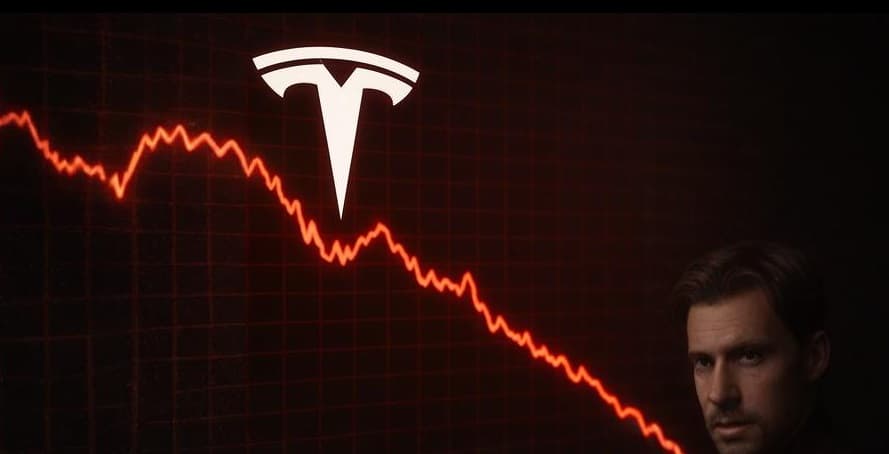Tesla’s $873 Billion Meltdown: How Elon Musk’s Politics and Rising Competition Are Collapsing an EV Empire

Tesla's meteoric rise has long been intertwined with the persona of its CEO, Elon Musk. However, recent developments have cast a shadow over the company's trajectory, raising questions about the sustainability of its growth and the implications of its leadership's actions.
A Tumultuous Market Performance
On December 18, 2024, Tesla's stock reached an all-time high of $488.54, boasting a market capitalization of $1.57 trillion. Yet, by March 11, 2025, the stock had plummeted to $217, slashing its market cap to $697 billion—a staggering loss of $873 billion in just 83 days. This decline wasn't merely a reflection of market volatility; it mirrored deeper issues within the company's fundamentals.
Declining Sales and Market Share
Tesla's sales have seen a significant downturn, particularly in Europe. In Germany, deliveries dropped by 76% in February 2025 compared to the same month the previous year. Overall, Tesla's European sales fell by 45% between January 2024 and January 2025 .
In the U.S., Tesla's market share has been steadily declining. From holding 75% of the U.S. EV market in early 2022, Tesla's share dropped to 43.5% by Q1 2025 . This erosion is attributed to increasing competition from automakers like Ford, GM, and Hyundai, which have been aggressively expanding their EV offerings.
The Elon Musk Factor
Elon Musk's involvement in politics, particularly his role in the Trump administration's Department of Government Efficiency (DOGE), has been a polarizing factor. Appointed in January 2025, Musk led initiatives aimed at reducing federal spending, resulting in the termination of over 200,000 federal employees and significant agency reductions .
While some praised these cost-cutting measures, others criticized them as reckless. Musk's political alignment and actions have led to protests and boycotts against Tesla, with customers and celebrities distancing themselves from the brand.
Challenges with Product Quality
Tesla's product lineup has also faced scrutiny. The Cybertruck, once hailed for its futuristic design, has been plagued with issues. Reports of rust problems, door alignment issues, and recalls have marred its reputation . Such quality concerns have raised doubts about Tesla's manufacturing processes and quality control measures.
Intensifying Global Competition
Chinese automaker BYD has emerged as a formidable competitor. In 2024, BYD captured approximately 18% of the global EV market, selling 4.27 million new energy vehicles . Their vehicles, known for affordability and efficiency, have appealed to a broad consumer base, challenging Tesla's dominance.
The Road Ahead
Tesla stands at a crossroads. The intertwining of its brand with Elon Musk's persona has been both a strength and a vulnerability. As the company navigates declining sales, quality concerns, and intensified competition, it must reassess its strategies. Decoupling the brand's identity from its CEO, addressing product quality issues, and adapting to global market dynamics will be crucial for Tesla's sustained success.
In the ever-evolving EV landscape, adaptability and a focus on core competencies will determine the leaders of tomorrow. Tesla's journey ahead will be a testament to its ability to evolve and respond to the challenges of a dynamic market.
Similar Posts
June 9, 2025
The Blood Lily Blooms: Haemanthus, Billy Evans, and the Unavoidable Shadow of Theranos
In the tumultuous landscape of biotech startups, a new name has emerged, immediately drawing comparisons to one of Silicon Valley's most infamous...
Comments
0 comments posted
